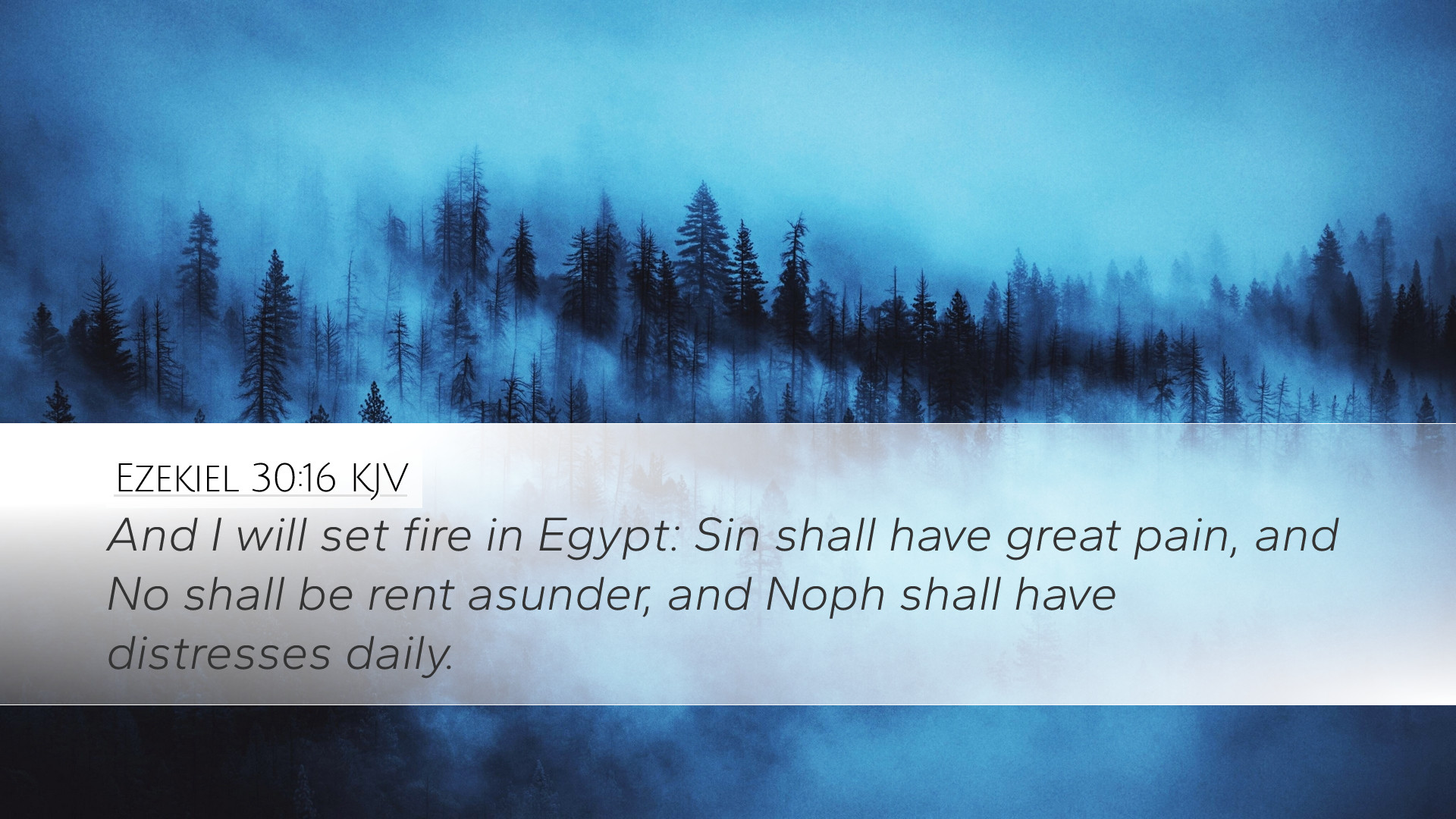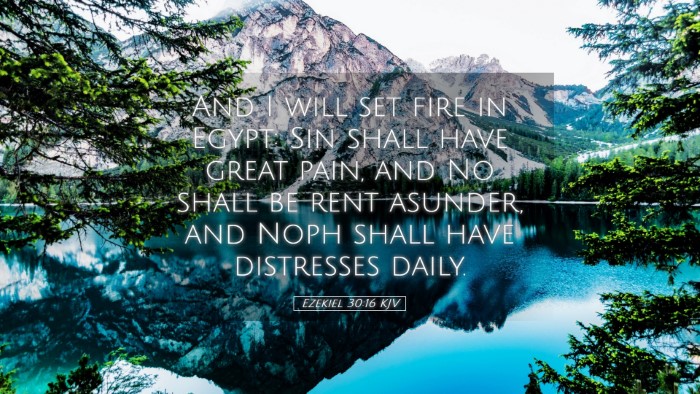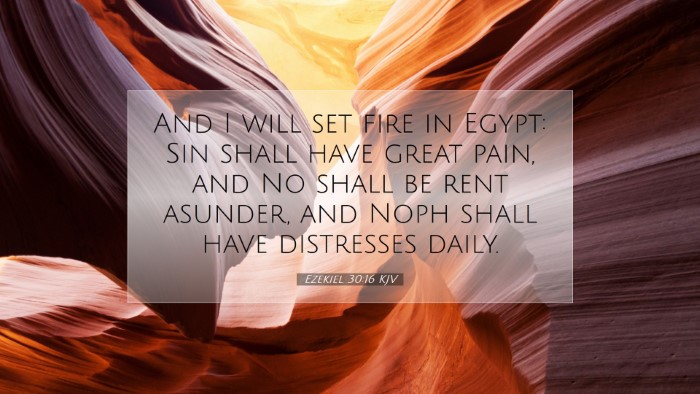Ezekiel 30:16 - Biblical Commentary
Ezekiel 30:16 states:
"And I will set a fire in Egypt: Sin shall have great pain, and no more shall be." - Ezekiel 30:16 (KJV)
This verse presents the judgment upon Egypt and reflects the overarching themes of divine retribution and the sovereignty of God over nations. The prophetic oracle delivered through Ezekiel conveys a severe warning and calls for deep theological reflection.
Contextual Overview
The Book of Ezekiel is set against the backdrop of the Babylonian Exile, addressing the nation of Israel and its interactions with surrounding nations, including Egypt. The earlier chapters of Ezekiel mounted a critique against Jerusalem and the fate awaiting various nations, encapsulated in symbolic language.
Commentary Insights
1. Divine Judgment on Egypt
According to Matthew Henry, this verse illustrates a critical aspect of God's judgment. Henry notes:
"The fire in Egypt symbolizes the divine wrath to come. Through this metaphor, God reveals His intention to chastise the nation for its idolatrous and rebellious nature against Him."
Henry elaborates that Egypt's historical reliance on false gods led to its eventual downfall. The reference to "Sin" here denotes a significant city in Egypt, both geographically and spiritually, illustrating the hub of idolatry that would face destruction.
2. The Symbolism of Fire
Albert Barnes underscores the metaphor of fire as synonymous with judgment:
"Fire is a common emblem of destruction. The Lord’s anger is akin to a consuming fire, and through it, He purges sin and wickedness." - Barnes
Here, Barnes connects the impending suffering of Egypt to a broader theological principle where all nations that turn away from God encounter His judgment. He notes that the prophecy indicates a complete obliteration of strength and security for Egypt.
3. The Extent of Divine Retribution
Adam Clarke presents an essential perspective regarding the impact of divine retribution on existential terms, stating:
"The mention of great pain reflects not merely physical suffering but spiritual desolation as nations experience the absence of God's favor." - Clarke
In his commentary, Clarke highlights that “great pain” implies an intense spiritual and emotional turmoil that Egypt would undergo as divine judgment unfolded. It serves as a cautionary tale for nations moving away from God’s covenant.
4. Lessons for Leaders and Nations
This prophecy serves as a profound warning to contemporary leaders and nations about the consequences of idolatry and turning away from God. Pastors and theologians are reminded that, as Matthew Henry articulates:
"Leaders must remain vigilant against the allure of worldly powers that entice them away from God's truth." - Henry
5. Theological Implications
The judgments depicted in Ezekiel extend beyond historical Egypt; they resonate throughout biblical theology concerning God's sovereignty and the fate of nations. Albert Barnes concludes this thought, suggesting:
"The overarching narrative of scripture reveals that God’s dominion persists across all realms, intricately governing both judgment and mercy." - Barnes
Practical Applications
- Encouragement to Seek God: This judgment serves as a reminder for both individuals and nations to continually seek God's wisdom and guidance.
- Importance of Repentance: Recognizing the need for repentance is critical. As one turns back to God, they can find hope and restoration.
- Future Generations: Share the consequences of historical disobedience with future generations to ensure they remain steadfast in faith.
Conclusion
In drawing insights from this verse, it is vital for pastors, students, and theologians to understand the multifaceted layers of God's judgment as portrayed through Ezekiel's prophecy. The implications for both personal faith and collective national practices echo through time, urging all to remain aligned with the eternal truths found in scripture.


